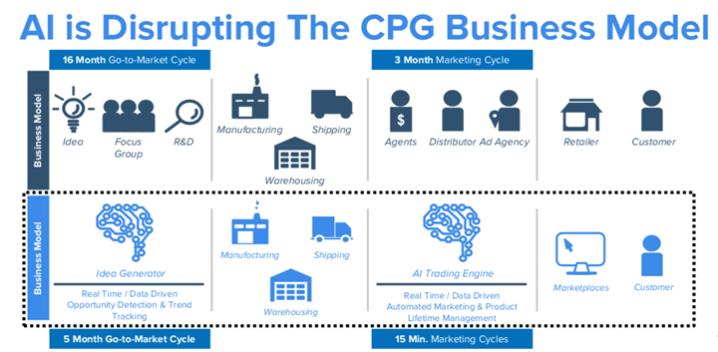In addition, these types of events could negatively impact consumer spending in the impacted regions. To the extent any of these events occur, our business and operating results could be adversely affected.
A failure to comply with current laws, rules and regulations or changes to such laws, rules and regulations and other legal uncertainties may adversely affect our business, financial performance, results of operations or business growth.
Our business and financial performance could be adversely affected by unfavorable changes in or interpretations of existing laws, rules and regulations or the promulgation of new laws, rules and regulations applicable to us and our businesses, including those relating to the internet and e-commerce, such as geo-blocking and other geographically based restrictions, internet advertising and price display, consumer protection, anti-corruption, antitrust and competition, economic and trade sanctions, tax, banking, data security, network and information systems security, data protection and privacy. As a result, regulatory authorities could prevent or temporarily suspend us from carrying on some or all of our activities or otherwise penalize us if our practices were found not to comply with applicable regulatory or licensing requirements or any binding interpretation of such requirements. Unfavorable changes or interpretations could decrease demand for our services, limit marketing methods and capabilities, affect our margins, increase costs or subject us to additional liabilities.
For example, there are, and will likely continue to be, an increasing number of laws and regulations pertaining to the internet and e-commerce that may relate to liability for information retrieved from or transmitted over the internet, display of certain taxes and fees, online editorial and consumer-generated content, user privacy, data security, network and information systems security, behavioral targeting and online advertising, taxation, liability for third-party activities and the quality of services. Furthermore, the growth and development of e-commerce may prompt calls for more stringent consumer protection laws and more aggressive enforcement efforts, which may impose additional burdens on online businesses generally.
We are subject to anti-corruption, anti-bribery, anti-money laundering and similar laws, and non-compliance with such laws can subject us to criminal penalties or significant fines and harm our business and reputation.
The SEC, the U.S. Department of Justice, the U.S. Treasury Department’s Office of Foreign Assets Controls (“OFAC”), the U.S. Department of State, as well as other foreign regulatory authorities continue to enforce economic and trade regulations and anti-corruption laws across industries. U.S. trade sanctions relate to transactions with designated foreign countries and territories, including Cuba, Iran, North Korea, Syria and the Crimea region of Ukraine (“Crimea”) as well as specifically targeted individuals and entities that are identified on U.S. and other blacklists, and those owned by them or those acting on their behalf. Anti-corruption laws, including the U.S. Foreign Corrupt Practices Act (the “FCPA”) and the U.K. Bribery Act (the “Bribery Act”), generally prohibit direct or indirect corrupt payments to government officials and, under certain laws, private persons to obtain or retain business or an improper business advantage. Some of our international operations are conducted in parts of the world, including Ukraine, Philippines and China, where it is common to engage in business practices that are prohibited by these laws.
Although we have policies and procedures in place designed to promote compliance with laws and regulations, which we review and update as we expand our operations in existing and new jurisdictions in order to proportionately address risks of non-compliance with applicable laws and regulations, our employees, partners or agents could take actions in contravention of our policies and procedures or violate applicable laws or regulations. As regulations continue to develop and regulatory oversight continues to focus on these areas, we cannot guarantee that our policies and procedures will ensure compliance at all times with all applicable laws or regulations. In the event our controls should fail, or we are found to be not in compliance for other reasons, we could be subject to monetary damages, civil and criminal monetary penalties, withdrawal of business licenses or permits, litigation and damage to our reputation and the value of our brand.
As we expand our operations in existing and new jurisdictions internationally, we will need to increase the scope of our compliance programs to address the risks relating to the potential for violations of the FCPA and the Bribery Act and other anti-bribery and anti-corruption laws. Further, the promulgation of new laws, rules and regulations, or the new interpretation of existing laws, rules and regulations, in each case that restrict or otherwise unfavorably impact the ability or manner in which we or our retailers and brands conduct business could require us to change certain aspects of our business, operations and commercial relationships to ensure compliance, which could decrease demand for services, reduce revenue, increase costs or subject us to additional liabilities. Anti-corruption and anti-bribery laws have been enforced aggressively in recent years, are interpreted broadly and prohibit companies and their employees and agents from promising, authorizing, making, offering, soliciting or accepting improper payments or other benefits to or from government officials and others in the private sector. As we increase our international sales and business, particularly in countries with a low score on the Corruptions Perceptions Index by Transparency International and increase our use of third-party business partners such as sales agents, distributors, resellers or consultants, our risks under these laws may increase. Under these laws, we could be held liable for the corrupt or other illegal activities of our employees, representatives, contractors, business partners and agents, even if we do not explicitly authorize or have actual knowledge of such activities. Noncompliance with these laws could subject us to investigations, sanctions, settlements, prosecution, other enforcement actions, disgorgement of profits, significant fines,
17



